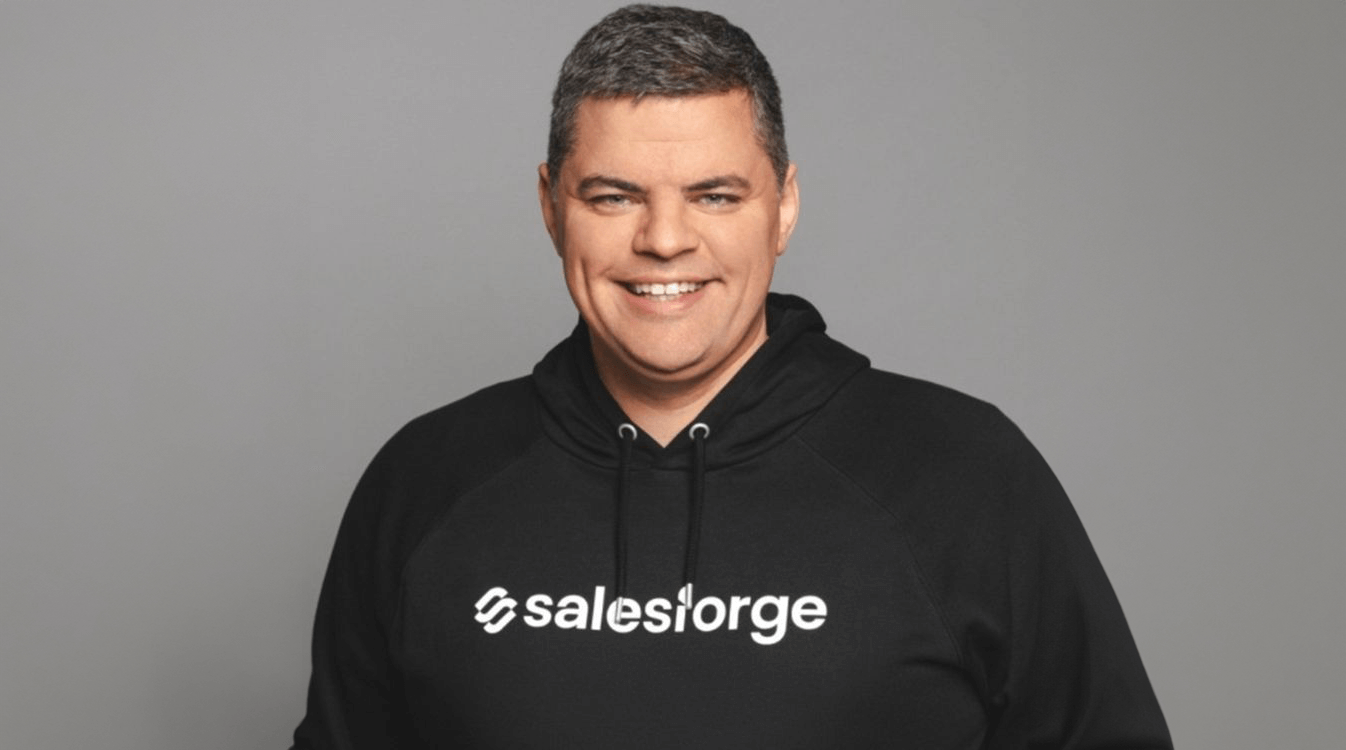
Is SEO really dead—or just misunderstood in B2B marketing?
Sam Dunning, Founder of Breaking B2B, joins Sanjana to debunk the myths, share when and how to invest in SEO, avoid common pitfalls, and tie SEO success directly to revenue with the right metrics.
—
Connect with Sanjana Murali: LinkedIn: https://www.linkedin.com/in/sanjanarm/
Connect with Sam Dunning: LinkedIn: https://www.linkedin.com/in/samdunning/
Follow All About B2B Marketing: YouTube: https://www.youtube.com/@AllAboutB2BMarketing
![Sanjana Murali]()
Sanjana Murali
at Dealfront
Hi everyone, today we are diving into a topic that sparks endless debate and to break it down for us, we have a fantastic guest, Sam Dunning. Sam is the founder of a B2B digital marketing agency called Breaking B2B and he's also the host of Breaking B2B podcast. Hi Sam, welcome to the show. Hey, thanks for me on. I'm looking forward to the chat. Same here. It's great to have you here on the show. So let me jump straight in and ask the big question right away. So there's a growing narrative that, know, SEO is losing relevance, especially with AI driven search results, you know, dominating discovery. So what's your take on this topic? Do you think SEO is dead in 2025 or is it evolving? What are your thoughts? Yeah, yeah, yeah. mean SEO died in 1973 actually. It died a long, slow and painful death along with cold calling, cold email, along with paid ads, along with demand generation, along with LinkedIn. No, I'm just kidding. there's actually a... It's a funny one. I mean, it always cracks me up. If I'm scrolling LinkedIn, I'll see one post saying, LinkedIn's dead. Then I'll see a post saying SEO's dead. Then I'll see a post saying AI search is all everyone uses now, but...
And a lot of these channels and platforms is a bit of a bubble, especially in B2B marketing and SaaS marketing. Us marketers kind of get sometimes caught up in our own hype. But do I think SEO is dead? Well, the data would say otherwise. So for example, Randfiskin, Spark, Toro and a company called Datos recently reviewed through the last 12 months or so, AI searches versus searches on Google. So when I say I search primarily chat GBT.
and then also comparing that to Google searches and they came up with that Google search still gets 374, I believe it's 374 times more searches than AI. And even if you combine all the AI tools together, chat, GBT, perplexity, et cetera, they only make right now 2 % of the search market. So AI search is definitely growing, LLM searches are growing, but people are still sticking to the devil they know, which in many cases is Google search.
So if you're a company that's perhaps thinking, no one's actually going to bother looking for our stuff on Google. The chances are they are providing that you're in a category that's known. The folks actually know about your offer, your solution, the problem you solve. Google is probably still a good way to capture inbound leads for in-market prospects needing your offer. Okay, yeah, I think that's a fantastic perspective. I love how you broke down, you know, why SEO isn't dead, but evolving. It seems like I think marketers need to rethink their approach, you know, rather than abandoning SEO altogether. We'll dig deeper into how B2B companies should be thinking about SEO. coming to my second question, we all know that SEO takes time and effort and not every company has the patience for it. So should, do you think every B2B SaaS company invest in SEO or?
Are there cases where it's just not worth the effort? There's many situations where a B2B or SaaS company should not do SEO. one would be first and foremost, SEO is always best placed as a demand collection or demand capture channel. What do I mean by that? Well, I mean, you need to have dream clients that are actually searching directly for your offer, your solution, comparing you to other options or looking for crisp and specific problems you solve. If folks don't know your offer exists, i.e. you're creating a new category or offer.
then SEO is not your best bet. You're way better off working out where your dream clients spend time, hang out where they get trusted information, then educating them, entertaining them on the channels they're more likely to be on, which will not be Google search because they don't know your offer exists. So that's one case where it doesn't make sense. Another case is if you're in perhaps a funded tech company and maybe you've got really high targets and a lot of stress to deliver super, super fast, then again, SEO
probably not going to be your best bet because leadership probably aren't going to have the time, patience or give it the resource it needs. You're probably better off going to add possibly outbound sales or similar. And the other time, the other situation where it doesn't make sense is if you perhaps lack, but SEO never really works if leadership, i.e. marketing or revenue leadership have done SEO before. If they don't know how SEO works, i.e.
It's not always, especially in B2B, right? In B2B, most of us are selling quite high ticket offers that need some consideration. I.e. someone doesn't search for it once and suddenly buy. They search for it, discuss it with their peers, maybe on Slack or Discord or in person. Maybe then they tune into your podcast. Maybe then they check out your YouTube or your newsletter. Maybe then they search again. So there's a lot of back and forth. There's a messy buyer journey. If folks don't know that SEO is a piece of the puzzle in the B2B marketing ecosystem.
And they perhaps just think, someone's, we're just going to suddenly get a ton of leads and they don't really know kind of how search works, how content marketing works, the process, then it's probably not the best fit. Ideally, you need someone in leadership that understands the value SEO, the evergreen effect, the fact that you're building assets for the medium and long-term, then it's going to be a bit of an uphill battle. If you just have leadership that think, we suddenly need to 10X leads by next quarter.
It's just not, not really like that. But with that said, with those, with that kind of three point negative spin, am against the typical kind of agency saying, SEO needs six to 12 months, because in many cases you can't see with a strategic approach, you can see results with SEO as quick as 90 days. So there are many strategies, especially in B2B tech and SaaS that you can follow to start driving kind of pipeline.
and even revenue that we've done for a bunch of B2B tech and SaaS companies with the right strategy as quick as 90 days. Will that be the same for every keyword even if it's super competitive? No, but there are ways that you can go about making that happen. I mean, yeah, that makes a lot of sense. I think it's easy to assume every company should do SEO, but as you pointed out, it's not always the right fit. So for companies that should invest in SEO, what's the best way to get started without wasting months on trial and error? Yeah, yeah. So if you want to get started on SEO, we want to the whole premise of having a revenue driving or demo driving or pipeline driving SEO strategy or whatever you want to call it is time to value. What is the efforts that we can do in the shortest space of time that can drive the most meaningful qualified traffic leads and result in revenue? So how can we make SEO work as quickly as possible to drive business outcomes that leadership are actually going to care about?
One of the simplest ways to do that, to actually work out where our strategy should be and what our targeting should be, is I always recommend that if you're the founder, do this, or if you're the marketing leader at a company, do this. Fire up a Google sheet or an Excel sheet, whatever you want to do. And within that sheet, just split it off into four main columns. And those columns would be, number one would be our main offer or our main solution. How do folks refer to our offer? And I'll give you some examples in a sec.
The second is the industries that we serve best. the industries, and excuse my dog, the industries that we've historically sold well into, that have the problem we solve, understand the impact of not fixing the problem and are motivated to fix that issue. Plus they have cash to easily invest in the offer. The third is the competitors, the main competitors. We always come across the competitors that always raised on sales calls, four or five main competitors. We know what they are. They come up to an almost annoying level.
in those sales conversations. And then the last one is our dream clients jobs to be done or struggling moments or kind of crisp and specific pain points. Jobs to be done is a really good marketing framework. Teaches us that people don't necessarily buy the product, but they buy the why behind it as they've reached a struggle with their current way of getting a certain task done. So four main columns, column one was our offer. As an example, if we provided, let's say calendar scheduling software that I like to use an example.
quite a lot that could be column one, how can we refer to offer calendar scheduling tools, calendar scheduling software, calendar booking platforms, all those kinds of different ways we can refer to it. would be column one. Column two would be what are the industries we serve best? That could be sales teams, HR, FinTech, SaaS, sports, whatever are those main industries we've historically sold well into and are motivated and have the cash to do it. Number three, what are our main competitors that always come up?
In the calendar scheduling world, that would be things like HubSpot meetings, Calendly, Revenue Hero, has a bunch of others, right? And then number four, what are our clients pain points, their jobs to be done? If we're talking about calendar scheduling, it could be how to schedule meetings with prospects without email back and forths, how to avoid being ghosted by sales prospects. That would be a pain point I'd imagine.
Those kind of things that your sales team will be able to tell you about that they hear on sales calls time and again are those annoying pain points that keep coming up. Once you've exhausted those four columns, the whole crux of this is that we can build out long tail keywords or topics our dream clients are going to search for when they have a good level of sales intent to get a demo, book a call or take a sign up around our offer. Now you might be thinking, well Sam, best calendar scheduling software sounds good, but that's going to be bloody difficult to rank for and I'd agree.
And that would probably be a long term keyword that we go after because at the moment giants like Calendly, Chilli Piper, Revenue Hero are probably ranking well. So that would probably be a keyword that we slowly chip away at. We'd go for more longer tail searches using our industry terms like best calendar scheduling tools for HR or FinTech or sales teams or whatever our industries are. We'd also go for, if we're SaaS, we'd go for competitor alternative keywords, which can be a really quick win in the SEO game.
As we know that in B2B it's rare that folks go with the first vendor they stumble across. They normally make a short list of three, four, five vendors, discuss it entirely and eventually make a decision. Therefore, that's why folks search on Google things like competitor pricing, competitor reviews, competitor alternatives. It's like calendarly alternatives, calendarly pricing, calendarly reviews, all that kind of stuff. Or they search it because they're annoyed with their current vendor and they want to look for a different solution.
So those can be quite wins. Often with those competitor keywords, you can rank for those as quickly as kind of 30, 45 days we've seen. And then the last one is the jobs to be done. This is a little less bottom funnel commercial intent. This is a bit higher up in the funnel. So things like, what did we say earlier? How to avoid getting ghosted by sales prospects or how to easily book meetings without back and forth, that kind of stuff. Those are more how to blog articles that we build out, but they position your product, their product led, they position your product, do your...
tool as the painkiller. So the article would be like, we know you're struggling with this problem. It's probably having this impact, like you're missing meetings or you're missing quota. Your cells seem to be getting frustrated. This is exactly how our tool fixes it. This is an example of inaction. Here's some social proof. Here's some examples of client results, like book a free trial or book a demo, whatever that CTA is, or grab this lead magnet. So that's all about mapping out the strategy and those long tail topics that you're going to go after. Yes, you can then run them through a tool like SEMrush or Hrefs to check they've got a bit of search volume, but...
don't fall into what I call the traffic trap as quite often these commercial, these high sales intent keywords have less traffic or less monthly searches, but are more likely to drive those high intent inbound leads. So that's kind of stage one. And then the rest of it is building out what we call money content and building authority. But that's the first thing you want to do before you go into creating pages or building content or building backlinks, which I'm happy to share more. there are places where we can learn more about your template, do you have it in your website or something or some videos? It's really interesting. Yeah, I mean, you can check out the Breaking B2B podcast. you search Breaking B2B or Sam Dunning on YouTube or Apple or Spotify, there's a bunch of videos there. Or you can just go on BreakingB2B.com, hit the newsletter tab and you can instantly download our playbook that shares this. I'll also share the links in the description so people can check it out. Amazing for sharing your, know, step-by-step approach for using SEO to drive the pipeline. Now, the next question is, you know, SEO is often misunderstood and many companies waste time on some outdated strategies. So what do you think are some of the biggest mistakes that B2B companies make with SEO today and how can they avoid that? There is many, many, many, many, one of the biggest is what I call falling into, I alluded to it earlier, but it's falling into what we call the traffic trap, quote unquote. And that is easily done, especially for small marketing teams that typically have a ton of tasks and projects to juggle each and every week. And then when leadership...
kind of start to get frustrated that competitors are constantly above them in organic search results on Google or AI search and they're aware that those competitors are kind of stealing market share, stealing traffic, stealing leads just because they're investing in a proper SEO program. They might say to the marketer that look, we need to do SEO because our competitors keep showing above us for these commercial keywords that our sales prospects are searching for. I mean to fix that. But then the marketer, because they're so busy, they might just do basic SEO and kind of look for a keyword that shows that has high traffic like a how-to keyword or what is keyword or something like that that we call top of funnel. It's more of an informational based keyword rather than a commercial intent. So it's less likely to drive sales leads or demos. And then they might chuck that keyword into chat GPT or similar, pump out a quick article, make a few tweaks and publish it on the website and then get back to their other tasks for the week. But the issue with that is a couple of months later, the revenue leader or the marketing leader might come back and say, like, how do we go on with SEO and the marketing will say, great, I got this article out. did some SEO like you told me to. And they'll say, great, how many leads did it drive?
And they'll say, well, it didn't drive any leads. You didn't tell me to do that. You just told me to do some SEO, which I did. And that's where the issue is. It doesn't have a strategy. It's kind of going after these keywords or topics that seem to drive those of traffic. And yes, this page might even rank that you've built, but if it's built with AI content that's right now, in my opinion, isn't the strongest, I mean, the best pages in general.
backed by customer research. So no matter if it's a landing page, an article, a product comparison, whatever, the most important thing in B2B is resonating with your dream clients. And if you're pumping out articles through chat, GBT and hoping for the best, then it's probably not, it's probably going to be full of jargon and confusing language and technical language and that kind of stuff that your prospects probably don't use. ⁓ it's one of them.
Most important things in my opinion, B2B marketing in general is resonating with your dream clients. So you understand their problems, their goals, their jobs to be done. And then you position your product as the solution. That's just product marketing 101 really. So that's one of the biggest things that falling into the traffic trap. Not having a clear strategy, not going after money keywords, IE topics that are going to drive leads as quick as possible and building best in class content to resonate and rank and convert with dream clients. Yeah, I love that you called out those common mistakes. think I can already imagine a lot of companies falling into these traps without realizing it. So if someone listening to this video today has already made these mistakes, what's the best way to course correct? Yeah, yeah, I mean, so I suppose the good thing is if you've already got some articles on your site, that's nice because you might be driving some traffic and you might even be building some what's called topical authority around certain subjects. So then those pages, those articles, maybe the how to articles or what is articles, whatever they could then link internally to some of the more commercial intent landing pages for the products or services or solutions you provide. So it's not all bad, but you probably just want to do that strategy we talked about earlier, like work out those money keywords.
fire up that spreadsheet, kind of take the time to really exhaust those bottom of funnel search terms and then start working out kind of what pages you should be building, like the landing pages. mean, working out what pages you should be building. Once you've done that spreadsheet exercise and you've worked out your money keywords, all you really need to do is Google each keyword, see what type of page Google favors. So what page ranks well in organic search? Is it a landing page? Is it an article? Is it a comparison? Is it product listicle? What shows up most? And then
work to build a page that's more helpful, more useful, more insightful and leverages those customer insights or those sales insights that you can pull into it. So do that strategy. And then if you've done that and in a couple of months, your page still isn't ranking, then you might need to earn some backlinks towards it to kind of pump up the authority of the page. And one of the quickest wins possible to do that is if you've got a founder or an exec on your team that's been in the media, whether they've guested on podcasts,
maybe they've done guest articles, maybe they've done PR. Literally copy and paste your website URL into a tool like hrefs or semrush. Click the back links tab and you can see all the pages that have linked to you. Filter it to domain authorities or domain rating, which has got the strongest. Then look for the sites that are relevant to your industry or niche, not just random websites. Whoever published those articles, reach out to them, maybe message them on LinkedIn. They might have just linked to a page that's relevant or irrelevant rather.
So that's where you could reach out to that author of that page and say, look, I wondered if you could, featured my founder or my exec a while back. I wonder if you could tweak this link to actually point to one of our focus pages with this anger text. Or the other way you can do it is you can copy and paste that exec's LinkedIn profile. And what you'll find is if you copy and paste the LinkedIn profile, then click back links tab, a lot of pages will have linked to their LinkedIn, but not to your website. So that's when you can get a nice back link again. You can ask the author of that page to...
to link to one of your focus keywords, one of your focus topics, and most of them will do it. It's just a really, really easy way to get some solid back links. And there is a bunch of other strategies that that's one of the quickest. And it all happens for free, right?
It's all for free. Yeah, that's completely free and it's basically leveraging stuff you've already done. then probably my second favorite one to earn backlinks to kind of competitive keywords is guesting on niche relevant podcasts. So industry podcasts, just like we're doing now, finding the podcast that folks listen to in your industry and then guesting on those doing a great show and then asking the host to then when they publish the podcast page article, to then give you a backlink to one of your focus keywords is again, a really easy win. I think that's a smart way to build authority without spending on paid links. Awesome. Right. So the last question I would say, SEO isn't just about rankings anymore, right? So what do you think are the key metrics that actually matter for measuring SEO success and like how do you tie them back to revenue? Yeah. Yeah, so ultimately we want to drive qualified inbounds and depending on our go-to-market motion, whether we're product-led growth, that might be qualified signups. If we're more sales led, that might be booked demos that qualified or it might be booked calls. And then on the back end, we want to make sure that they're actually converting into close one revenue. Now, what metrics should we be looking out for initially? So I guess some of the leading indicators that your SEO is on the right tracks.
is that these money, these commercial, these high sales intent keywords are actually starting to rank organically on, in Google's case, page one organically top three of Google or close to. So we can start reporting on that. Then we can start reporting on the click throughs that are coming through to the site and the qualified traffic. Then we can start reviewing how those visitors are interacting with the website if they're having a good session time. They're not just suddenly coming to the page and bouncing, but they're having a decent like a couple minutes or more session time. They're going to key pages.
Maybe they're going from the article then to a landing page or product page. Maybe then they're clicking the, maybe you've got a video demo that they're checking out and maybe they're checking out your pricing page. They're going to those high intent pages. So we've even got the potential to retarget them with ads or even have ourselves team reach out if we think they're ready. So those are kind of the leading indicators like organic rankings, traffic, hitting the click throughs, hitting the key pages and session times. Then the lagging indicators will be depending on whether it's a top funnel page or bottom funnel page. Maybe they're downloading an asset.
Maybe they're taking a free sign up. Maybe they're booking a demo or they're booking a call. And then of course we're tracking that through to close one revenue. But a lot of B2B marketers, especially a year or two years ago, were kind of hyping on about kind of how did you hear about us as being the all seeing, all dancing way to attribute leads. But I'm a big fan of doing everything.
and kind of tracking as much as you possibly can. So yeah, on your calendar tool or on your booking form have how did you hear about us? Don't have it as a drop down, have it as a free text field. And then again, when you have the sales cool, have your salesperson ask like, what was your journey to stumbling upon us today? Because I've had it so many times when folks on our form of on the BreakingB2B.com site have said they just typed in LinkedIn. Then I asked them again on the cool, I say like, how did you stumble upon us? Like really curious to know how you found us today. And they'll say,
Actually, I listened to the podcast, then I checked on another show, then I listened to YouTube, then I followed you on LinkedIn for three months, then I realized you actually did know what you're talking about and Book A Call. So you'll find that the actual journey is often way different to what people put on a form. And I'll ask one other question, which I encourage sales teams to ask. Like, I know you're probably comparing a couple of vendors, but what made you actually take the time to Book A Call with us? Because I know that I don't necessarily inquire on every website I flick on. Like, was there something that caught your eye or something that made you take the time to fill out that form?
And then leveraging all that insights. Yes. How did you hear about us asking on sales calls, analytics, whatever conversion tracking you've got and then kind of putting the pieces together to track what's actually closing in on one deals is my advice. Awesome. That's a great breakdown of SEO metrics beyond just rankings, I would say. I guess too many marketers focus only on traffic, but without considering the actual business impact. But I guess, you know, the listeners today can take these insights and try and implement them. Awesome. That's all. Sam, this has been an incredibly insightful discussion. I appreciate how you broke down complex SEO topics into actionable insights.
So before we wrap up, can you tell us where can our viewers connect with you and learn more about your work at Breaking Beat?
Yeah, I appreciate you having me on. So there's three main ways. The first is LinkedIn. So I'm sharing daily ramblings, ideas, experiments around SEO and B2B marketing there. Just search Sam Dunning. The second, like you said, is the Breaking B2B Podcast. We have weekly episodes. Either I interview a SaaS marketing leader on what's driving growth today, or I share actionable episode on SEO, SaaS marketing, or similar. Or the third is if you may be tired of seeing your competitors above you in
Google search results or AI search results meaning those competitors are stealing traffic and inbound leads and you want to start fixing that and driving pipeline from SEO then we might be able to help you can grab a call over at breaking B2B.
Thank you Sam again and to our audience if you found this conversation valuable don't forget to like, comment and subscribe for more insights on B2B marketing. See you all in the next episode.




